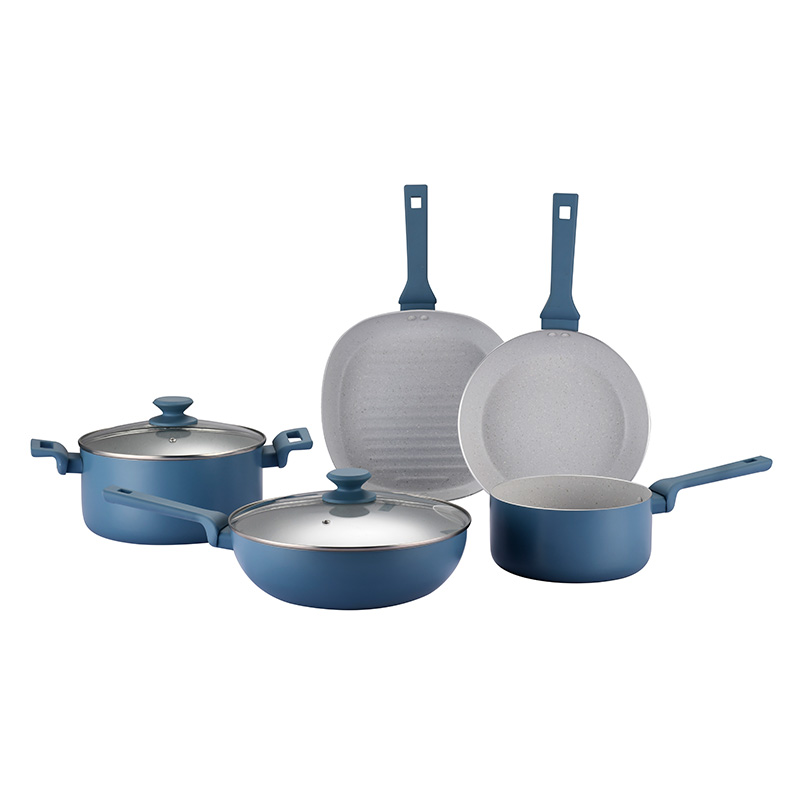
Demand for non-stick cookware remains high, both domestically and overseas, and has evolved into an essential tool for contemporary home chefs. Because of the intricate system of checks and balances within the trade environment, many manufacturers of non-stick cookware face numerous hurdles in overcoming quality standard restrictions during the exporting stage. These hurdles present an immediate and significant challenge for numerous companies.
For manufacturers of cookware with fluororesin coating, there are three main obstacles in export markets:
Different technical standards. In markets such as Europe, the US, and Japan, there are strict requirements for the safety of fluoropolymer coatings. These must not only be free of PFOA, but also meet several test criteria regarding abrasion resistance, heat resistance, and heavy metal leaching. This places high demands on the manufacturing process.
Frequent changes in trade policy. Uncertain factors such as customs policy, anti-dumping investigations, and environmental regulations can result in additional costs and delivery delays for manufacturers of non-stick cookware.
Lack of brand awareness. Although some small and medium-sized manufacturers of non-stick cookware have achieved a certain size domestically, they are hardly known in foreign markets, so they can only enter the market through OEM production and price competition, which puts pressure on their profit margins.
Quality and technology continue to be the backbone of non-stick cookware manufacturers in international competition, especially in this market. Manufacturers face increased pressure to meet the basic industry standard of “PFOA-free,” along with enhanced demands for additional cookware improvements, such as better coating durability, more uniform heat conduction, and reduced weight of the cookware. To enhance the wear resistance and energy efficiency of the cookware, some companies are adopting multi-layer composite materials and advanced spray coating techniques, improving the overall experience for international customers.
At the same time, non-stick frying pan manufacturers should focus on improving their quality control systems and ensure that their export products receive international certifications such as FDA, LFGB, and SGS. This is not only the ticket to the market, but also the foundation for building long-term customer trust.
In the foreign market, one cannot rely solely on low prices to remain competitive in the long term. Brand image and user ratings are the key to gaining market share. Manufacturers of non-stick pans should include brand building in their export strategy. This includes, for example, participating in international kitchen exhibitions, promotional campaigns in collaboration with well-known local chefs, or opening an official flagship store on an e-commerce platform to sell directly to end consumers.
Some companies develop localized product lines for their target markets. For example, the shape and capacity of the pans are adapted to the cooking habits of European and American consumers, or the heat resistance is improved in line with the requirements of the Middle Eastern market. Such a segmented product strategy facilitates market acceptance.
In view of growing global environmental awareness, environmentally friendly production is becoming a new standard in international trade. Manufacturers of non-stick cookware should actively introduce environmentally friendly raw materials and energy-saving production processes in order to overcome export barriers. This includes, for example, reducing wastewater and exhaust emissions and using recyclable packaging. This not only complies with the environmental regulations of the importing countries, but also contributes to building an image of corporate social responsibility.
Studies show that environmental awareness significantly improves brand acceptance among consumers and that, especially in the European and American markets, eco-labels have a direct influence on purchasing decisions. Therefore, integrating sustainability into corporate strategy is a long-term strategy for manufacturers of non-stick cookware to tap into foreign markets.



 Español
Español عربى
عربى

